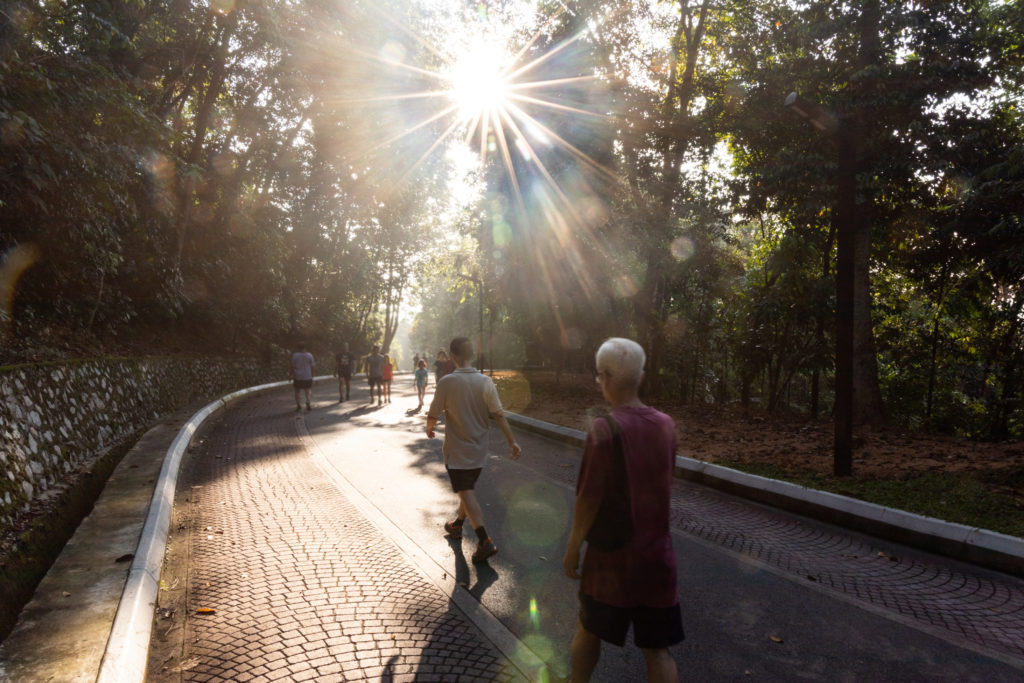Quick Hits
Daily brief research updates from the cognitive sciences

In the quest for fitness and health there has been a focus on exercise as a key factor – we all know that. And recommendations are normally about increasing heart rates over long periods of time or possible also shorter more intensive sessions. These have also been shown to improve cognitive function – making your brain more effective.
However, the route to greater health may be easier – or more specifically of enhanced brain function. The effects of light activity in the focus on more intensive and extensive exercise has been largely underestimated – and is considered by some to be a key factor in public health. Our engagement in light activity has over the decades decreased significantly – see my previous article here.
In this research just out Ryuta Kuwamizu and colleagues of the University of Tsukuba in Japan conducted a simple but effective experiment. In this participants did 10 mins of easy exercise – in this case light pedalling while seated. During this they measured pupil dilation because this is also related to brain function specifically executive function. Executive function refers to harder cognitive tasks such as decision making, short-term, memory, calculation, and analysis – basically what many consider the heavy lifting of the brain in our daily lives.
Yes, and indeed just this short light exercise intervention increased delation of the pupil and this was directly related to improved executive functions which was determined though scanning the frontal part of the brain where our executive functions reside with a technique called near infrared spectroscopy.
This therefore points to, as I have mentioned in other places, the significant benefits of short bouts of light exercise on improved brain function – something of particular interest to businesses no doubt. I have long since promoted the idea of regular short walking breaks – this shows again why. For a review of the benefits of walking see this article here).
Not that it has to be at work – a walk or light exercise will improve your brain function – and that is good for all of us, all the time.

Andy Habermacher
Andy is author of leading brains Review, Neuroleadership, and multiple other books. He has been intensively involved in writing and research into neuroleadership and is considered one of Europe’s leading experts. He is also a well-known public speaker, speaking on the brain and human behaviour.
Andy is also a masters athlete (middle distance running) and competes regularly at international competitions (and holds a few national records in his age category).
References
Ryuta Kuwamizu, Yudai Yamazaki, Naoki Aoike, Taichi Hiraga, Toshiaki Hata, Michael A. Yassa, Hideaki Soya.
Pupil dynamics during very light exercise predict benefits to prefrontal cognition
NeuroImage, Volume 277, 2023.
https://doi.org/10.1016/j.neuroimage.2023.120244
More Quick Hits
Your brain on near-death experiences
Near-death experiences have fascinated many people ever since they have been reported. And these experiences guide our view of how we die: the memories of your life passing in front of your eyes, the tunnel of light, the floating movement towards a bright light....
Social networks grow your brain
The headline is a bit “click baity” but it is what a group of researchers found. To be more specific they found in macaques (cute monkeys) in the wild that having more grooming partners grew different regions of the brain. Grooming is the primate version of having a...
What do creative brains look like?
We’d probably all be happy to be a bit more creative — though research into our own opinions show that many people do actually consider themselves to be above average in creativity. An obvious self-bias. This is where scientists who study creativity come in and find...
New gender biases discovered
There have been many studies on gender biases, and I have followed, written, and spoken about many of these biases over the years (over a decade actually) but two studies have just come out that caught my eye. One out of New York University focused on gender natural...
Growth of your brain over your life
So, we all know that our brain grows very quickly as babies and children and then after a certain age, younger than some of us may like to think, there begins a slow decline. But precisely what and how is the question. Well, this is a question that an international...
How to reduce loneliness
I have reported multiple times on loneliness during the pandemic – mostly because interest and research into loneliness has taken a large uptick. I have also reported on how to combat this and was happy to see that a piece of research just out proved what I had...






